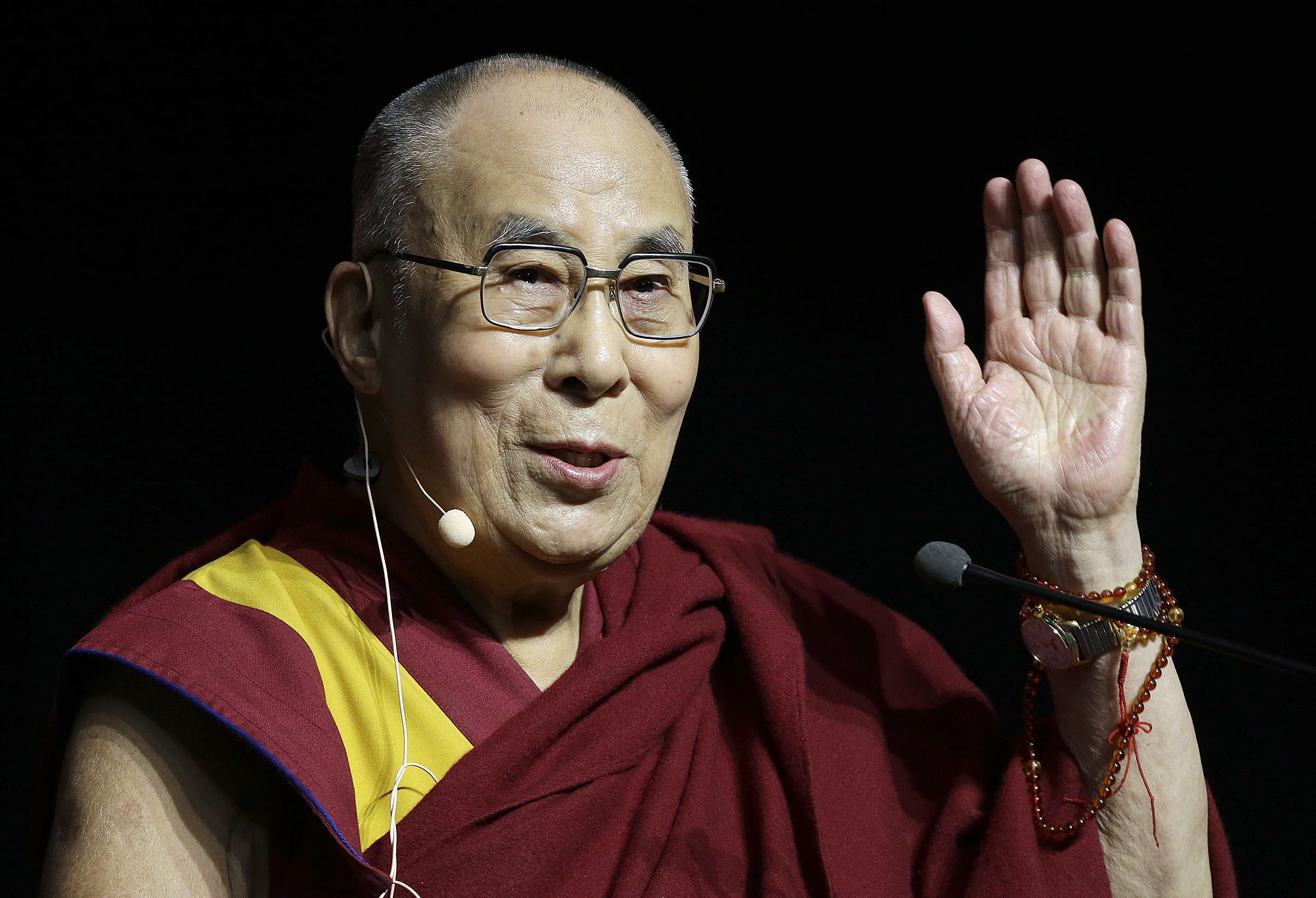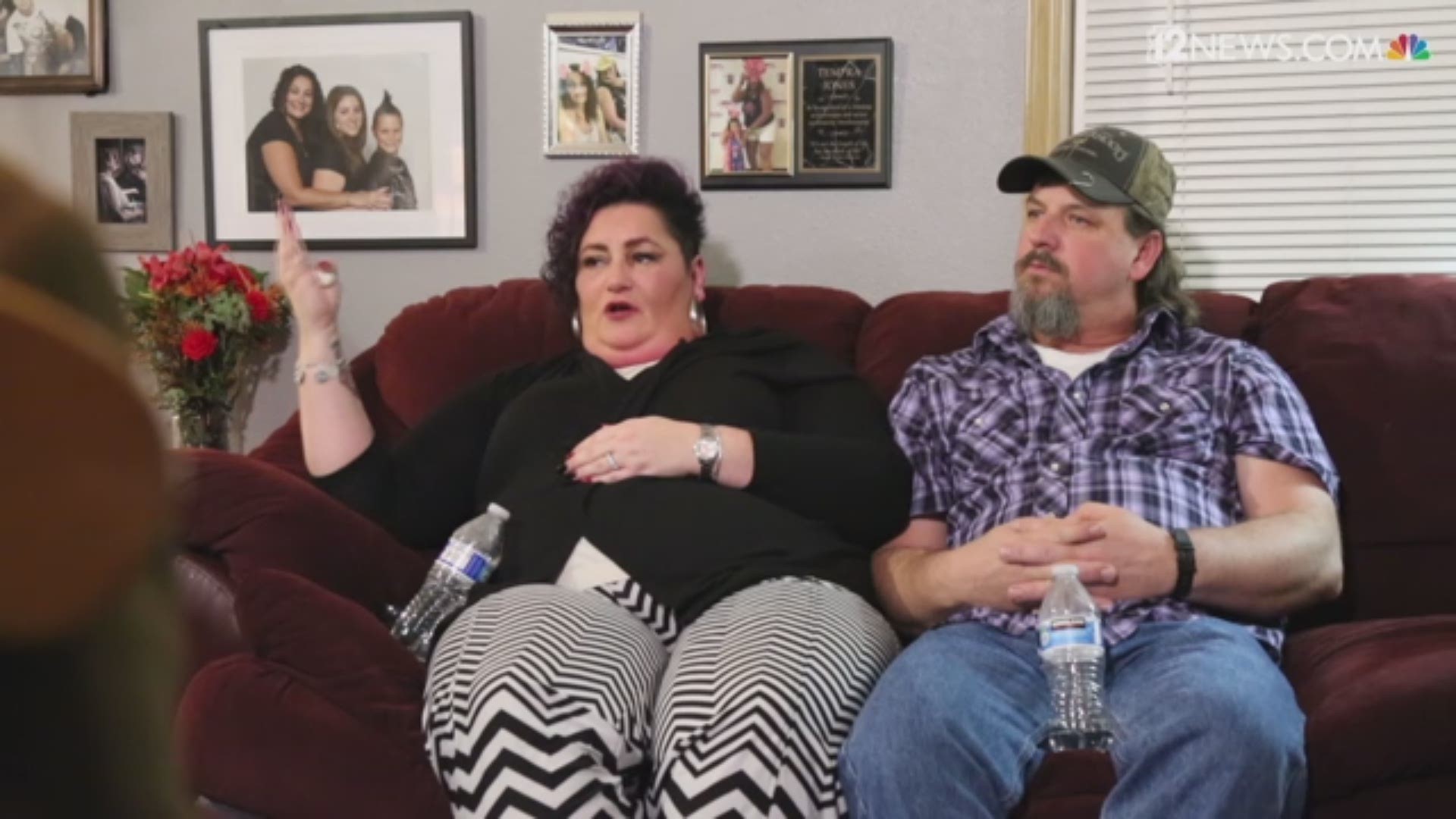INDIANAPOLIS — The room was filled with 6,400 Hoosiers, and the Dalai Lama wanted to see their faces.
When the bright lights of the Indiana Farmers Coliseum blinded his view, the spiritual leader of Tibet shielded his eyes to see the people gazing up at him.
Because when the Buddhist leader returned to Indianapolis on Saturday for a public talk on the potential for harmony and the usefulness of compassion, the visit resembled a personal conversation more than a speech.
![The Dalai Lama and Lady Gaga got together to chat [oembed : 86413332] [oembed : 86413332] [oembed : 86413332] [oembed : 86413332]](/Portals/_default/Skins/PrestoLegacy/CommonCss/images/smartembed.png)
"Brothers and sisters, indeed, I am very happy — a great honor — to meet a large number of people," he said. "Essentially we are all human brothers and sisters."
Though the crowd was silent at first, offering only gestures of respect in place of applause, the Dalai Lama's two-hour visit included quick-hit jokes, shared laughter and resounding approval for his message of compassion.
For more than half of his time on stage, he took questions from the audience dealing with personal enlightenment, societal struggles and his own life experiences.
![Despite Chinese objections, Obama meets privately with Dalai Lama [oembed : 86413378] [oembed : 86413378] [oembed : 86413378] [oembed : 86413378]](/Portals/_default/Skins/PrestoLegacy/CommonCss/images/smartembed.png)
"I never consider I am something special," he said. "We all, actually 7 billion human beings, mentally, emotionally, physically — we are (the) same."
In the Buddhist tradition, Dalai Lamas are said to be reincarnations of the Bodhisattva of Compassion and patron saint of Tibet. Bodhisattvas are enlightened beings who have postponed nirvana and leaving the earthly realm in order to serve humanity and aid others in achieving enlightenment. Tenzin Gyatso, 80, was recognized as the 14th Dalai Lama at the age of 2, and in his capacity as the spiritual leader of Buddhism, has advocated for nonviolence and world peace.
Throughout his talk, the Dalai Lama made several strong calls for personal and global peace. Here is a sampling:
1. Compassion is always the answer.
With a public talk titled "Compassion as the Pillar of World Peace," the Dalai Lama lived up to his billing. He said compassion is the antidote of anger, frustration and violence.
"Now scientists even say, basic human nature is compassionate," he said. "The compassionate feeling toward your enemy, the trouble maker … only we human beings can do that."
2. The external follows the internal.
The Dalai Lama, noting his own exceptional bill of health from his doctor, said a happy body comes from a happy mind.
When an audience member asked for advice in loving himself the way he loves others, the Dalai Lama responded that the question was silly: Self-love should be your first priority.
"The very fact we survive is self-love," he said. "We all have a seed of love."
3. Large-scale goals must start on a small scale.
World peace starts with inner peace, the Dalai Lama said. Big change can't come without small changes.
"Change in humanity must start from individuals," he said. "We created this violence, so we can reduce this violence."
He said prayers for world peace alone will not achieve it: Only action can bring change.
4. We all have the same capacity for love and happiness.
The Dalai Lama said distinctions and qualifiers on human beings serve only to divide the global community. At our root, he said, we all have the same humanity.
"We need oneness of 7 billion human beings," he said. "Sometimes there is too much discrimination on color, on class — rich and poor. This actually (is a) man-made distinction."
5. Religious fanaticism is misguided.
The Dalai Lama also spoke against linking religion and terrorism, saying killing in the name of different religions is unthinkable, and that doing so is a divergence from true religion.
"All religions carry the same message — love, compassion, things like that," he said. "That's the basis of our harmony."
6. In tragedy, we find opportunity.
When an Orlando, Fla., woman asked for advice for those suffering after the city's recent mass shooting, the Dalai Lama offered a suggestion: Think critically about how to make a positive change.
He also offered his condolences and prayers for the city of Orlando and said relief can start with one person.
"Those relatives who remain and those friends who remain instead of worry, worry, sadness, they must think of how to change that kind of society," he said, in part through his translator. "If one can turn the tragic situation into an opportunity to really awaken something, that will be really wonderful."
Follow Sara Salinas on Twitter:@saracsalinas.


![636024795359296404-08-Dalai-Lama.JPG [image : 86392028]](http://www.gannett-cdn.com/-mm-/db813ee9f9594d38b87f6ed1509258779d182c34/c=280-0-2196-1638/local/-/media/2016/06/25/INGroup/Indianapolis/636024795359296404-08-Dalai-Lama.JPG)
![Dalai Lama visits Indianapolis, speaks at Fairgrounds [gallery : 86388356]](http://www.gannett-cdn.com/-mm-/96d90269f0233c6290ae2bb0883ab2484f287889/c=390-0-2209-1555/local/-/media/2016/06/25/INGroup/Indianapolis/636024742249379958-13-Dalai-Lama.JPG)
